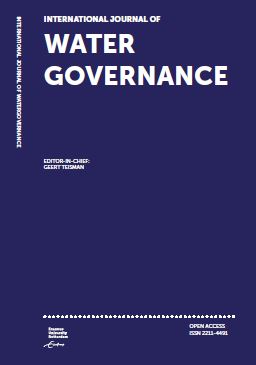Taking Stock of the Human Right to Water
Keywords:
human right to water and sanitation, discourse, global water, contestation, actors, development, governanceAbstract
The concept of the human right to water and sanitation (HRtWS) has received increasing
attention at the policy level in the form of national constitutional guarantees and UN actions, in
the work of development organizations, NGOs, network actors and private sector actors. In this
article, we explore how the discourse on the HRtWS from key actors in global water governance
has evolved over time. Understanding the various discourses around the HRtWS can provide
insights into how the HRtWS fits within larger governance trends, including development strategies
and practices. We find that despite initial resistance to human rights framing among many
of the actors involved in global water governance, there is a convergence on the existence of the
HRtWS. Yet, contestation among actors increasingly focuses on what the right means in practice
and how to implement a rights-based approach to water services. This contestation is particularly
visible around what a legal HRtWS means for questions of financing, providers and oversight.
We argue that the HRtWS brings a political dimension to a relatively technical driven discourse
by calling attention to issues of discrimination, power differentials, justice, equity and democratic
principles of citizen participation in water management.
Downloads
Published
How to Cite
Issue
Section
License
Copyright (c) 2018 https://creativecommons.org/licenses/by/4.0/

This work is licensed under a Creative Commons Attribution-NonCommercial 4.0 International License.






